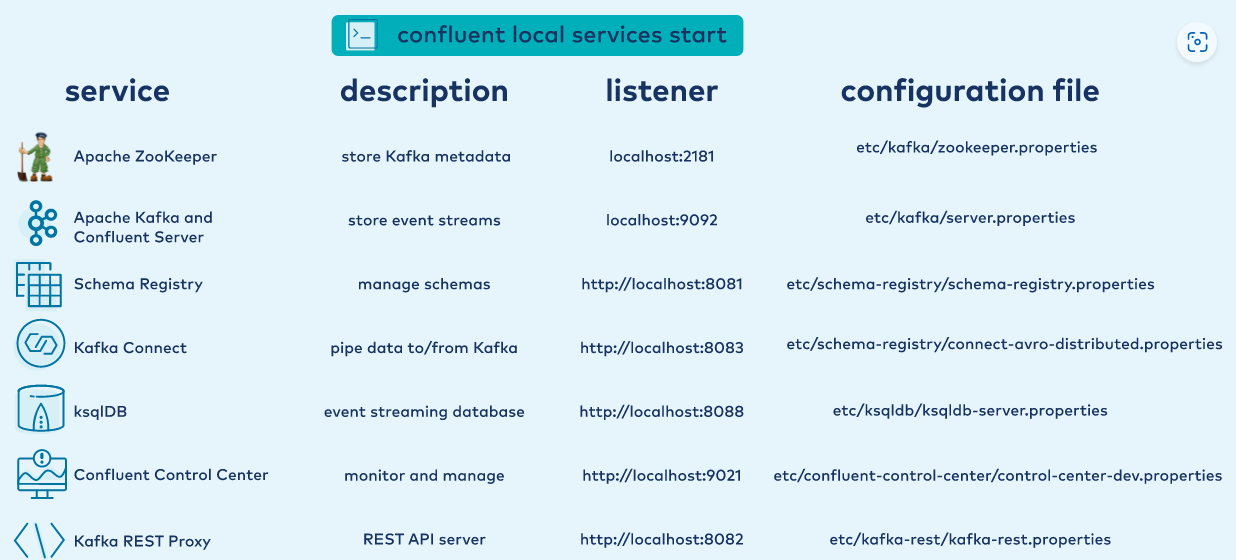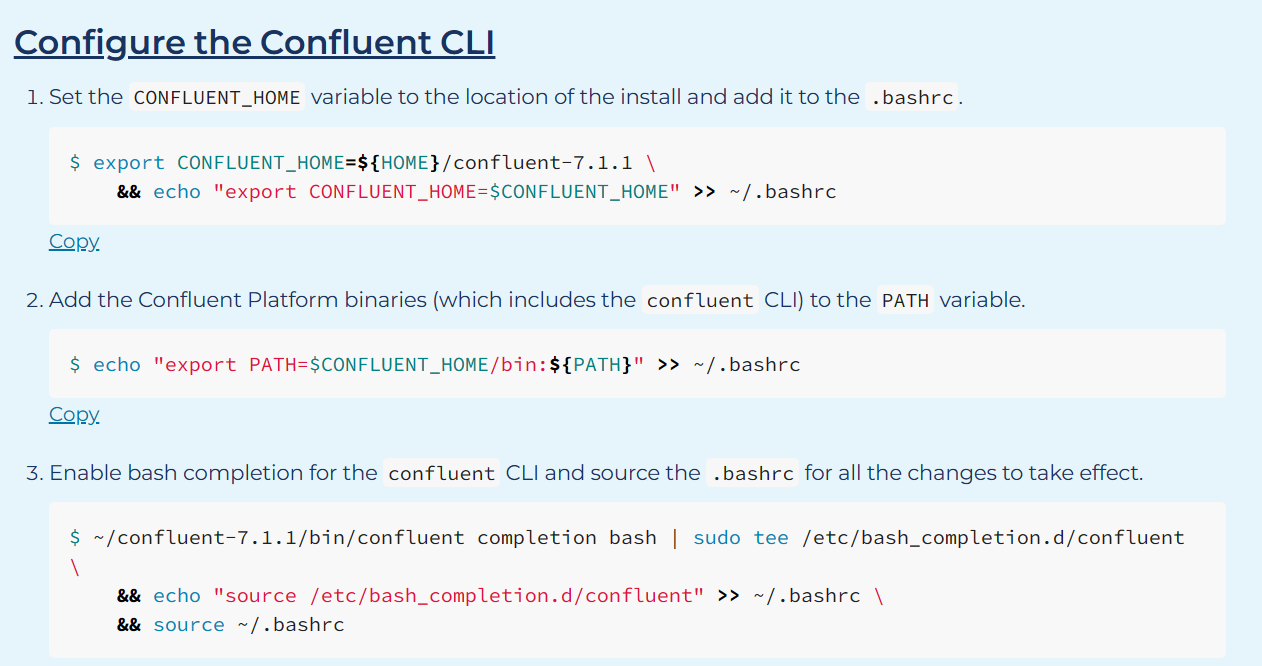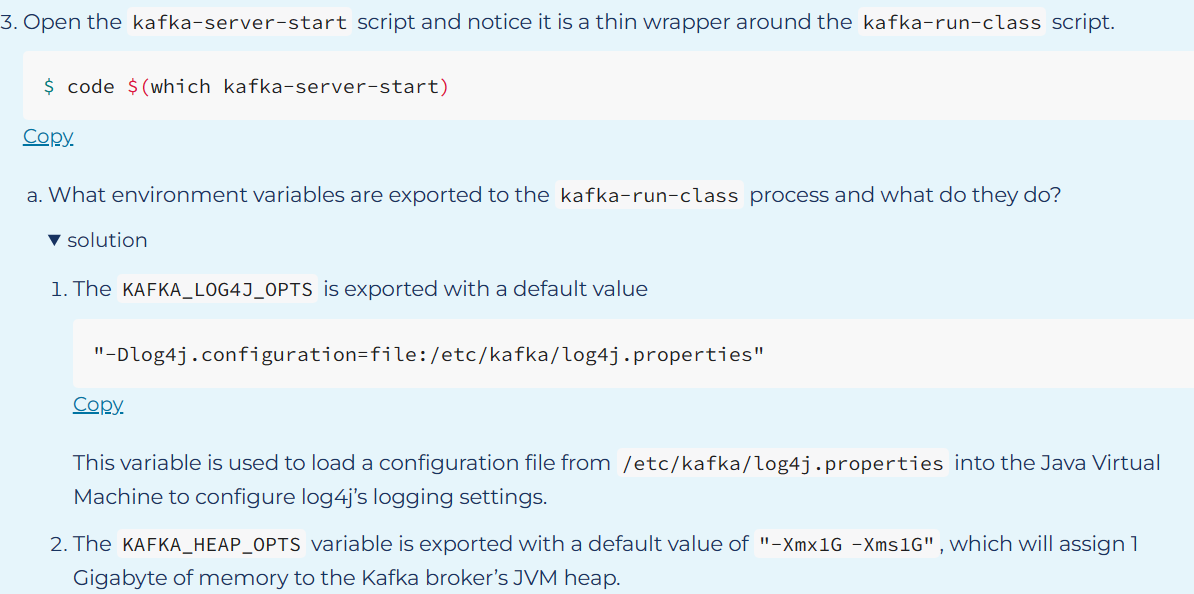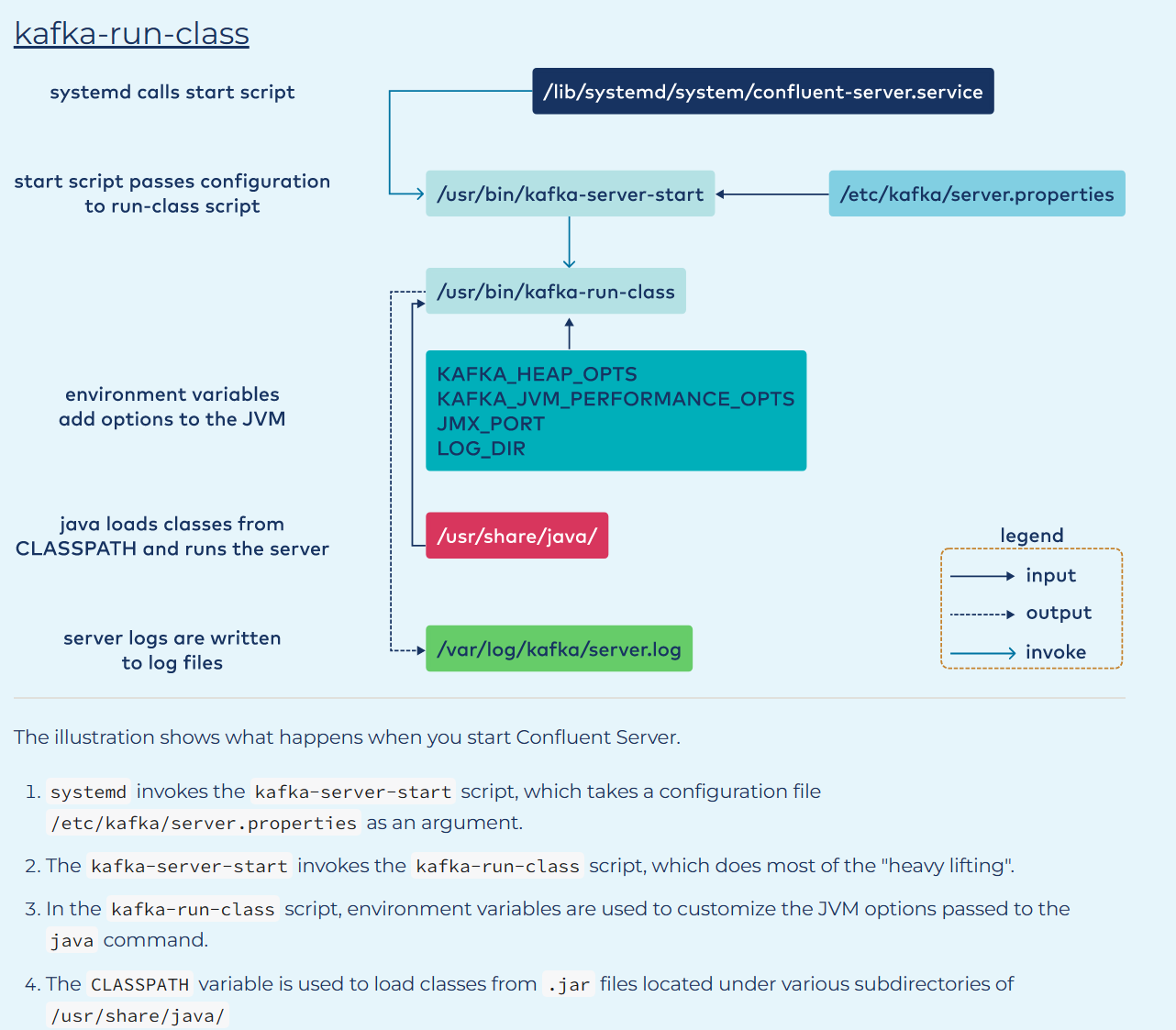Installing Kafka in DO


Avro schema file for the data you will produce to Kafka:
cat << EOF > ~/temperature_reading.avsc
{
"namespace": "io.confluent.examples",
"type": "record",
"name": "temperature_reading",
"fields": [
{"name": "city", "type": "string"},
{"name": "temp", "type": "int", "doc": "temperature in Fahrenheit"} ]
}
EOF
Consumer
$ confluent local services \
kafka consume temperatures \
--property print.key=true \
--property key.deserializer=org.apache.kafka.common.serialization.StringDeserializer \
--value-format avro
note: confluent local services kafka knows to look for Kafka at localhost:9092. The print.key=true property means we will see each event’s key in addition to its value. We provide a deserializer for the key. The –value-format avro means we are expecting Avro serialized data for the value.
Producer
$ confluent local services \
kafka produce temperatures \
--property parse.key=true --property key.separator=, \
--property key.serializer=org.apache.kafka.common.serialization.StringSerializer \
--value-format avro \
--property value.schema.file=$HOME/temperature_reading.avsc
Explore run-class scripts and env variables
Kafka and Confluent components are governed by run-class scripts that essentially feed various command line options to the java command.
$ systemctl cat confluent-server
outputs:
# /lib/systemd/system/confluent-server.service
[Unit]
Description=Apache Kafka - broker
Documentation=http://docs.confluent.io/
After=network.target confluent-zookeeper.target
[Service]
Type=simple
User=cp-kafka
Group=confluent
ExecStart=/usr/bin/kafka-server-start /etc/kafka/server.properties
LimitNOFILE=1000000
TimeoutStopSec=180
Restart=no
[Install]
WantedBy=multi-user.target

